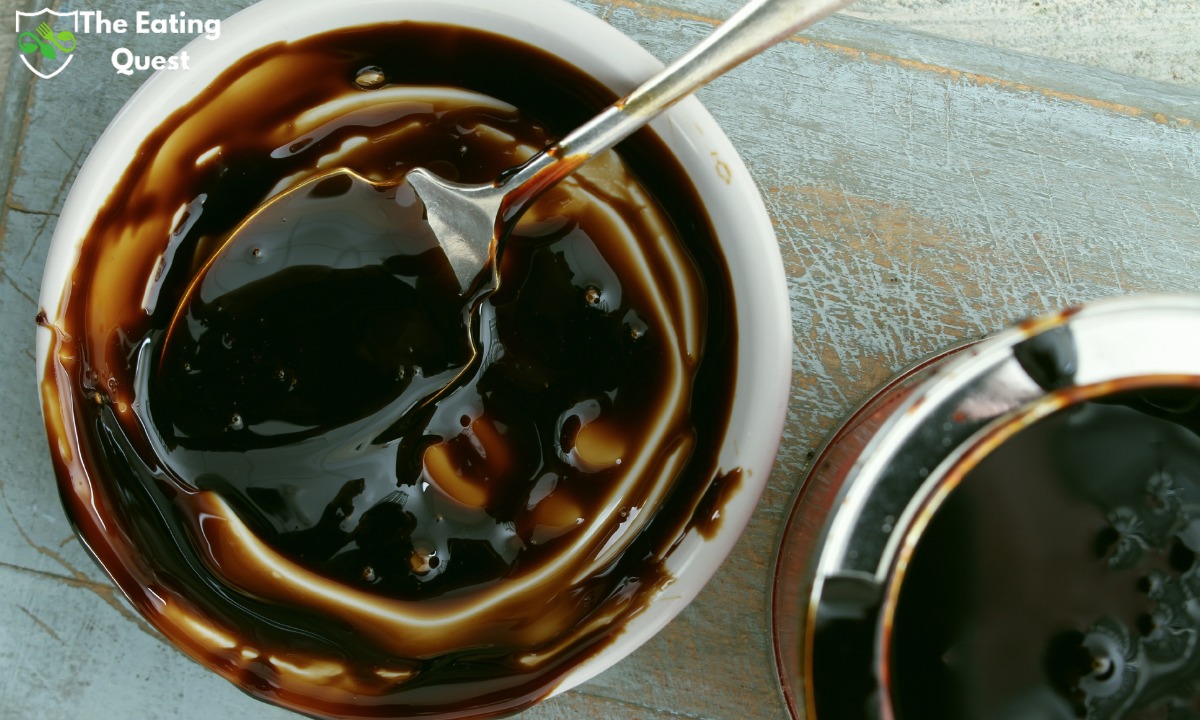If you’re someone who enjoys baking or cooking, you may have come across molasses as an ingredient in some of your recipes. Molasses is a thick, dark syrup that’s made from sugar cane or sugar beets and is commonly used as a sweetener or flavor enhancer. However, if you’ve had a container of molasses sitting in your pantry for a while, you may be wondering: does molasses go bad?
The short answer is no, molasses doesn’t go bad in the traditional sense. Due to its high sugar content and low water activity, molasses has a long shelf life and can last for years without spoiling. However, over time, molasses may become harder, darker, and more viscous, which can affect its texture and flavor. In this article, we’ll explore the shelf life of molasses, how to store it properly, and how to tell if it’s gone bad.
What is Molasses?
Molasses is a thick, dark, syrupy liquid that is a byproduct of the sugar refining process. It is made by boiling down sugar cane juice until the sugar crystallizes and is removed. The remaining liquid is molasses.
Molasses has a rich, complex flavor that is both sweet and slightly bitter. It is often used as a sweetener in baking and cooking, as well as in the production of rum and other alcoholic beverages.
There are several different types of molasses, each with its own unique flavor and color. The most common types are:
- Light molasses: This is the first molasses that is produced during the sugar refining process. It is light in color and has a mild, sweet flavor.
- Dark molasses: This is the second molasses that is produced. It is darker in color and has a stronger, more complex flavor.
- Blackstrap molasses: This is the third and final molasses that is produced. It is the darkest and thickest of the three, with a very strong, bitter flavor.
Molasses is a nutritious sweetener that is high in vitamins and minerals, including iron, calcium, and potassium. It is also a good source of antioxidants and can help to boost your immune system. However, it is important to consume molasses in moderation, as it is high in sugar and calories.
Does Molasses Go Bad?
Molasses is a sweet and thick syrup that is commonly used in baking, cooking, and as a natural sweetener. If you have a bottle of molasses that has been sitting in your pantry for a while, you may be wondering if it has gone bad. The good news is that molasses has a long shelf life and can last for years if stored properly.
One of the first things to check when determining if molasses has gone bad is the expiration date. While molasses doesn’t necessarily go bad, it can lose its flavor and quality over time. If the molasses has passed its expiration date, it may be time to replace it.
Another thing to look for when checking if molasses has gone bad is any signs of mold or discoloration. If you notice any mold or a change in color, it is best to discard the molasses. Mold can be harmful to your health and can cause food poisoning.
If your molasses has been sitting for a while and has crystallized, don’t worry, it is still safe to use. You can simply heat it up in a saucepan with a little bit of water to dissolve the crystals and restore its smooth consistency.
To ensure that your molasses lasts as long as possible, store it in a cool, dry place away from direct sunlight. You can also store it in the refrigerator to extend its shelf life even further.
In summary, molasses can last for years if stored properly and does not necessarily go bad. However, it is important to check for any signs of mold or discoloration and to pay attention to the expiration date. By following these tips, you can ensure that your molasses stays fresh and delicious for as long as possible.
How Long Does Molasses Last?
Molasses is a thick, dark syrup that is commonly used as a sweetener in baking and cooking. If you have a bottle of molasses in your pantry, you may be wondering how long it will last before it goes bad.
The good news is that molasses has a long shelf life and can last for several years if stored properly. In general, unopened molasses can last for up to 5 years, while opened molasses can last for up to 2 years.
However, it is important to note that the quality of the molasses may deteriorate over time, and it may become less flavorful or more viscous. To ensure that your molasses stays fresh for as long as possible, it is important to store it in a cool, dry place away from direct sunlight.
If you notice any signs of spoilage, such as mold or an off odor, it is best to discard the molasses and purchase a fresh bottle. Additionally, if your molasses has been stored for a long period of time, you may want to give it a quick stir before using it to ensure that it is still well mixed.
Overall, if stored properly, molasses can last for several years and is a great pantry staple to have on hand for all your baking and cooking needs.
How Long Is Molasses Good For?
Molasses is a thick and dark syrup that is produced from the refining of sugarcane or sugar beets. It is a common ingredient in many baked goods, marinades, and sauces. However, like any other food item, it has a shelf life and can go bad if not stored properly. In this section, we will discuss how long molasses is good for and how to store it to extend its shelf life.
Shelf Life of Molasses
Molasses has a long shelf life and can last for years if stored properly. The shelf life of molasses depends on its type and how it is stored. Generally, molasses can last for up to 5 years if stored in an airtight container in a cool and dry place. However, it is important to note that the quality of molasses may deteriorate over time, and it may become thicker and darker.
Signs of Spoiled Molasses
Molasses can spoil if it is contaminated with bacteria or mold. The signs of spoiled molasses include a sour or rancid smell, mold growth, or a change in color or texture. If you notice any of these signs, it is best to discard the molasses as it may cause food poisoning.
Storing Molasses
To extend the shelf life of molasses, it is important to store it properly. Molasses should be stored in an airtight container in a cool and dry place away from direct sunlight. You can also store molasses in the refrigerator to extend its shelf life. However, refrigeration may cause the molasses to become thicker, so you may need to warm it up before using it.
In conclusion, molasses has a long shelf life and can last for years if stored properly. It is important to store molasses in an airtight container in a cool and dry place to prevent it from spoiling. If you notice any signs of spoiled molasses, it is best to discard it to avoid food poisoning.
Does Molasses Need to be Refrigerated?
Molasses is a popular sweetener that is often used in baking, cooking, and as a topping for pancakes and waffles. One common question people have is whether or not molasses needs to be refrigerated.
The short answer is no, molasses does not need to be refrigerated. In fact, storing molasses in the refrigerator can actually cause it to crystallize and become harder to use.
Molasses is a highly concentrated sugar syrup that is made by boiling down sugar cane juice. This process removes most of the water content, leaving behind a thick, viscous liquid that is high in sugar and other nutrients. Because of its high sugar content, molasses is a natural preservative and does not require refrigeration to stay fresh.
However, it is important to store molasses properly to ensure that it stays fresh and does not spoil. Molasses should be stored in a cool, dry place, away from direct sunlight and heat sources. A pantry or cupboard is an ideal location for storing molasses.
If stored properly, molasses can last for up to 2 years or more. Over time, molasses may darken in color and thicken in consistency, but this does not necessarily mean that it has gone bad. Molasses that has gone bad may develop a sour or off flavor, or may show signs of mold or bacterial growth.
In summary, molasses does not need to be refrigerated but should be stored in a cool, dry place. Proper storage can help to extend the shelf life of molasses and ensure that it stays fresh and flavorful for longer.

Does Molasses Expire?
If you have a bottle of molasses in your pantry, you may be wondering if it has gone bad. The good news is that molasses does not expire in the traditional sense. However, it can lose its quality over time.
Molasses is a thick, syrupy liquid that is made from boiled sugar cane juice. It is a natural sweetener that is often used in baking and cooking. Molasses has a long shelf life and can last for several years if stored properly.
One thing to keep in mind is that molasses can crystallize over time. This is a natural process that occurs when the sugar in the molasses begins to separate from the liquid. If this happens, you can simply heat the molasses in a saucepan over low heat until the crystals dissolve.
Another factor that can affect the quality of molasses is exposure to air. When molasses is exposed to air, it can begin to develop a sour taste. To prevent this from happening, make sure to store your molasses in an airtight container in a cool, dry place.
In summary, molasses does not expire, but it can lose its quality over time. To ensure that your molasses lasts as long as possible, store it properly and watch for signs of crystallization or sourness.
Do You Refrigerate Molasses After Opening?
Molasses is a thick, viscous syrup that is often used as a sweetener in baked goods, marinades, and sauces. It is made from the juice of sugar cane or sugar beets that has been boiled down to concentrate the sugars and flavors. Once you open a bottle of molasses, you may wonder if it needs to be refrigerated.
The short answer is no, you do not need to refrigerate molasses after opening. Molasses has a long shelf life and can be stored at room temperature in a cool, dry place. However, some people prefer to refrigerate molasses to extend its shelf life and prevent it from crystallizing.
If you do choose to refrigerate molasses, be aware that it will become thicker and more viscous when cold. You may need to warm it up slightly before using it in a recipe to make it easier to pour and measure.
It is important to note that refrigerating molasses is not necessary for food safety reasons. Molasses is a low-moisture food that is not conducive to bacterial growth. As long as you store it in a clean, dry container with a tight-fitting lid, it should remain safe to consume for several months or even years.
In summary, refrigerating molasses after opening is not necessary, but it can help extend its shelf life and prevent crystallization. If you choose to refrigerate molasses, be aware that it will become thicker and may need to be warmed before use.
What Does Molasses Smell Like?
Molasses has a distinct aroma that can be described as sweet, earthy, and slightly bitter. The smell of molasses can vary depending on the type of molasses and how it was made.
Blackstrap molasses, for example, has a stronger and more pungent smell than light molasses. This is because blackstrap molasses is made from the final boiling of the sugar cane juice, which results in a higher concentration of minerals and a darker color.
When you open a bottle of molasses, you may notice a strong, sweet smell with a hint of caramel. This is because molasses is made by boiling down sugar cane or sugar beet juice until it thickens and darkens. The caramelization of the sugar gives molasses its distinct aroma and flavor.
It is important to note that the smell of molasses can change over time. As molasses ages, it may develop a slightly sour or fermented smell. This is a natural process that occurs as the sugars in the molasses break down and ferment. However, if the molasses has a strong, unpleasant odor, it may be a sign that it has gone bad and should not be consumed.
In summary, molasses has a sweet, earthy, and slightly bitter aroma that can vary depending on the type of molasses and how it was made. Over time, molasses may develop a slightly sour or fermented smell, but if it has a strong, unpleasant odor, it may be a sign that it has gone bad.
Frequently Asked Questions
How can you tell if molasses has spoiled?
Molasses can last for a very long time, but it can still spoil. The most common way to tell if molasses has spoiled is by checking its texture and smell. If the molasses has a thick, slimy texture or a sour, fermented smell, it may have gone bad and should not be consumed.
What are the proper storage conditions for molasses to extend its shelf life?
Molasses should be stored in a cool, dry place, away from direct sunlight and heat. Keeping it in an airtight container can also help to prevent moisture from getting in and prolong its shelf life. If stored properly, molasses can last for several years.
Is refrigeration necessary for unsulphured molasses after it’s been opened?
Refrigeration is not necessary for unsulphured molasses after it has been opened, but it can help to extend its shelf life. If you choose to refrigerate your molasses, be sure to keep it in an airtight container to prevent it from absorbing any odors or flavors from other foods in the fridge.
Can consuming expired molasses lead to foodborne illnesses like botulism?
While consuming expired molasses may not necessarily lead to foodborne illnesses like botulism, it is still not recommended. Consuming spoiled molasses can cause upset stomach, diarrhea, and other unpleasant symptoms. It is best to discard any molasses that has gone bad.
What are the signs of fermentation in molasses?
Fermentation in molasses can be identified by its sour, fermented smell and a change in texture. Fermented molasses may also have bubbles or foam on the surface. If you suspect that your molasses has fermented, it is best to discard it.
Are there any effective substitutes for molasses if it’s no longer good to use?
There are several effective substitutes for molasses if it is no longer good to use. These include honey, maple syrup, brown sugar, and corn syrup. However, keep in mind that these substitutes may not provide the same flavor or nutritional benefits as molasses.
Also Read:
How Long Is Deli Meat Good For?
















